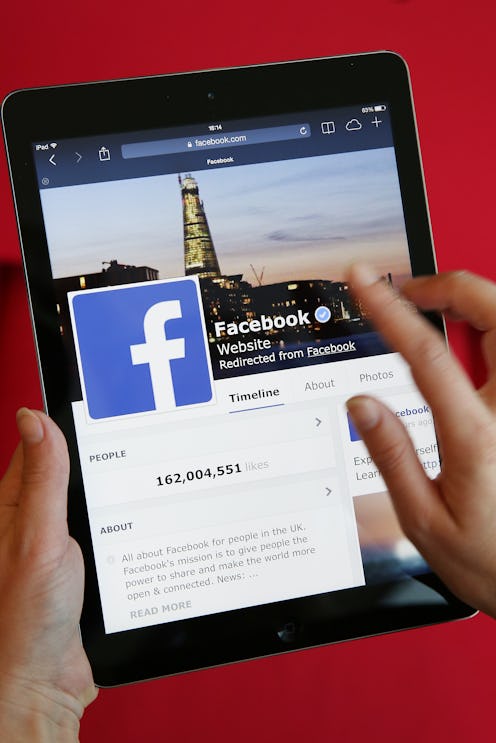Life
I Watched My Friend Suffer — and Did Nothing
It was a warm, clear day in August when I found out my friend from college had committed suicide. Not from a phone call. Not even from a text from a friend. No, I found out from the same medium through which I had followed his psychological ordeal for years: Facebook.
The moment was so mundane, and, suddenly, so troubling. Scouring my phone as I waited to meet friends at a karaoke joint, I scrolled past subway observations, two-line restaurant reviews, and cat photographs and landed on the most upsetting 500 words I've ever seen written on Facebook: My friend had "lost his battle with the anxiety, depression and eating disorder that had consumed him for so long and ended his physical life here on earth on Sunday," according to a message from his parents posted on his page.
His parents — and he, himself, via a final note — called us all "friends" in the post, which, when it comes to the digital translation, we were. After all, that is what you label anyone who bothers to reach out to you via Facebook, whether they're a childhood pal or the nice girl you met at the bar last night. And though I had "liked" a status or two, I felt more like a stranger than the person I was in college — the person who would stay up late with him in the dorm chatting about our favorite music, or the guitar chord I simply could not master. I was anything but a friend. Because, for the past few years, as my friend began to chronicle his struggle with an eating disorder on Facebook, I merely looked on with morbid curiosity. I never intervened; I never reached out to show support; I never contacted him to commiserate over the way pressure and anxiety often led me to skip lunch. I hadn't spoken to him in six years.
Instead, I simply watched. I became so fascinated in his ordeal, even Facebook knew it — the site's algorithm regularly surfaced his status updates in my newsfeed, and I lapped them up. How did a guy who seemed so self-confident as a student find himself in a position where his life was a daily struggle?
I told myself it was none of my business. Still, I made it my business. And I've never felt so ashamed. Back in June, I scolded the Internet for enjoying the media circus surrounding Amanda Bynes' very public mental breakdown, citing the Genovese Effect as a reason we should not be sitting idly while the actress self-destructed. I shamed Twitter users and bloggers for being vocal, but useless, bystanders during Bynes' time of need...and failed to see that I, in real life, was doing the thing I was condemning. Even worse, I tried to rally help for an actress I'd likely never meet while completely ignoring the friend I once shared an address with.
Granted, I never anticipated his life would take this dark a turn. My friend, a budding musician, watched his albums score glowing reviews and his songs score airtime on beloved television series. What's more, he was one of the more optimistic people I had ever met in my life. His smile was contagious, and even updates about his condition were positive, stressing that, in the end, everything would be just fine. This attitude is precisely what made him popular — to most, my friend was a happy guy who made happy music that made others happy. His profile page in the months since his death attests to how much impact he had on the world, or at least on those who knew him — new tributes and photos still appear daily. How does someone so beloved decide his life isn't worth enduring?
I'm realistic about whether I could have changed the past. Reading the tributes, it's clear he was surrounded by friends and family who were closer and better to him than I was. If they couldn't save him, neither could I. But, since that warm August day, I can't help but reprimand myself for not doing anything. Words of encouragement or words of support won't solve a problem, but they help more than no words at all.
So, no, I can never consider myself a friend, and I'll never forgive myself for acting the voyeur, as if my struggling friend was a fancy dinner party taking place in the well-lit apartment across the street. In this digital age, it's all too easy to ignore problems streaming by you, to feel as though the life dispatches posted on Facebook were published primarily to quell your boredom. But Facebook — and social media in general — should also heighten our awareness, not only when it comes to political and social causes that require our attention, but also individual human beings who require our attention.
My friend certainly used it to accomplish the former. One of the reasons he was so open about his own eating disorder online was to raise awareness about the disease (and especially how it affects a demographic that is often ignored when it comes to the disorder). And just like my friend inspired me in college with his dedication to his music career, he inspires me now. While I didn't speak up during his struggle, I can try to prevent others from experiencing the same fate by speaking up in support of the National Association of Anorexia Nervosa and Associated Disorders and the National Eating Disorders Association — two support organizations to which my friend, in his final words, urged others to donate.
I am devastated that it's too late to reach out, that it's too late to show love. But donating to his cause is doing something, so that's what I did, and I hope others will, too. I spent far too long doing nothing.
